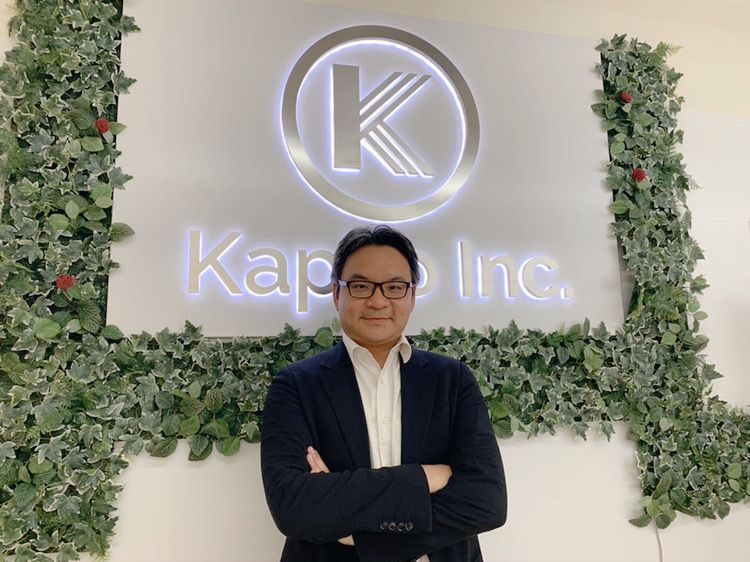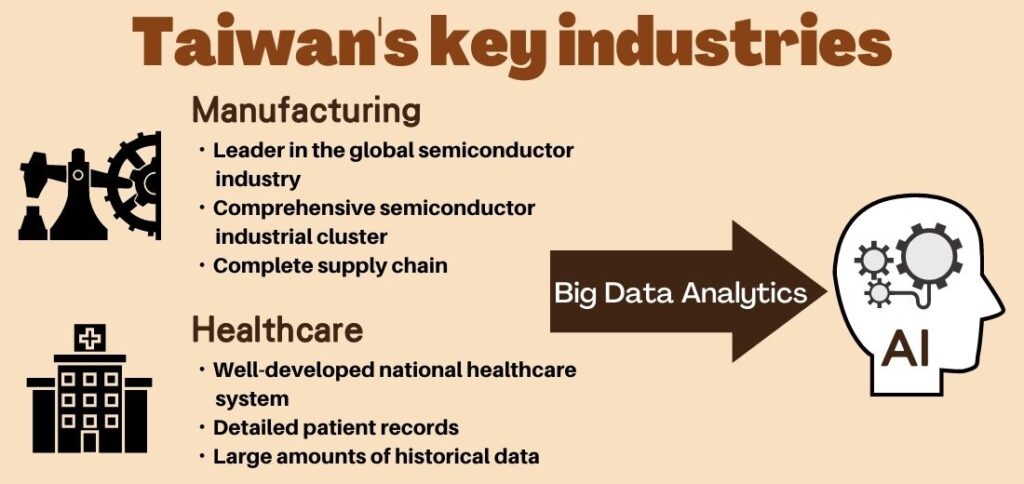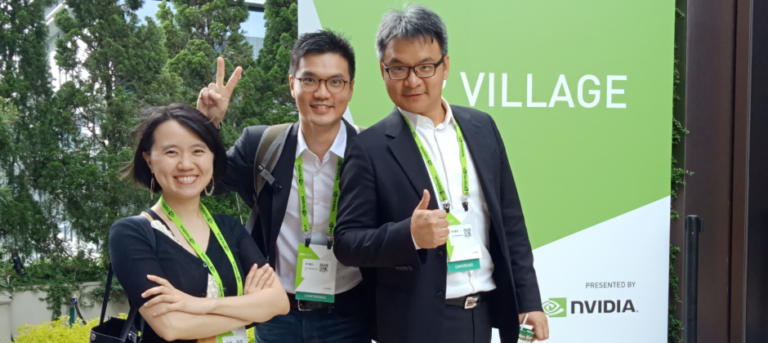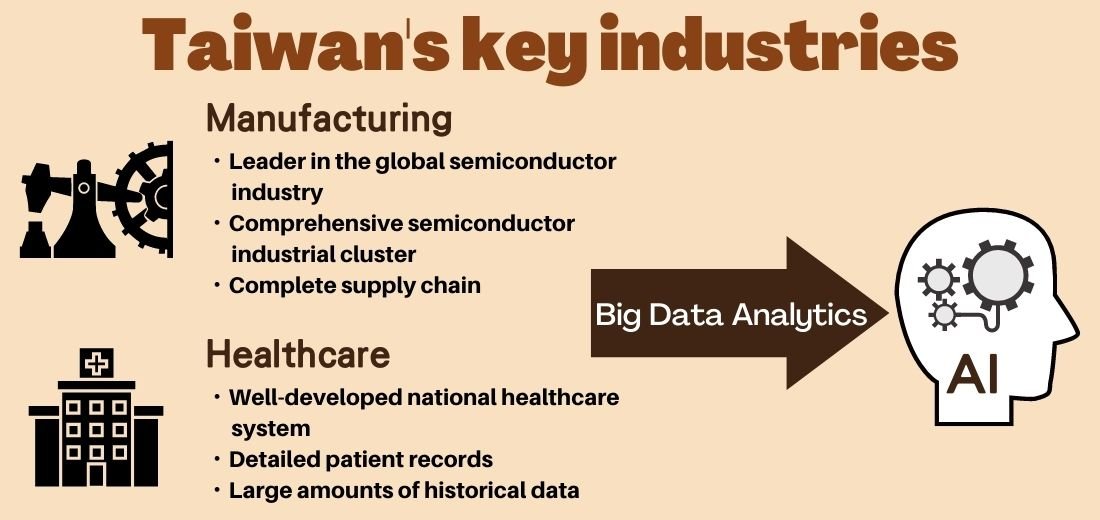【StarFab Newsletter Issue7】Kapito - Using AI Visual Inspection Technology to Help Manufacturers during the Pandemic
Artificial Intelligence has been deemed as the next technology poised to transform human civilization, after the advent of the Internet. AI is estimated to bring more convenience in our daily lives, increase productivity and profits in businesses, and help improve public safety, changing the way we live and work.
In this week’s issue, we invite Riccardo Sun, CEO of Kapito.Inc, a startup that won the special prize on the 2020 TAIRA Accelerator Program Demo Day, to share his entrepreneurial journey, and his take on global opportunities for AI.

Kapito focuses on AI visual recognition solutions, and with “Fastable. ai”, a fast and stable AI inspection product that combines edge computing, deep learning, highly scalable computing, and customized image capture. Fastable.ai delivers much higher accuracy in visual inspection compared to traditional equipment, helping improve yield rates and eliminating defective products in order to meet customer demand. Fastable.ai is currently used by manufacturers in the metallic foil, textile, and semiconductor industries.
AI vs. Human
“To be of commercial value, AI must have the ability to complete tasks at a human level,” says Riccardo Sun, CEO of Kapito.Inc.
Currently, transforming AI technology into physical products or services that can meet the requirements of the manufacturing field, and creating a sustainable business model is a common difficulty faced by many AI companies. In 2016, Google released “AlphaGo”, famously known for defeating a world champion at the game of Go. Next, the emergence of voice assistants and smart speakers, such as Siri and Amazon Echo, which combined different technologies that enabled it to respond, in addition to advances in machine learning and autonomous driving, has propelled AI to the forefront of multiple global industries.
While AI is becoming more and more important, companies need to think about how to make AI perform on the same level as humans, or even surpass human capabilities. Just as the advent of machine automation increased output dramatically beyond what mere human labour could achieve, and the invention of the internet and emails increased communication efficiency, AI will have to prove its ability to create commercial value and drastically improve operations. Without demonstrating its ability to exceed human capabilities, it will be difficult for AI to prove its value. Therefore, thinking outside of existing frameworks, and developing new mindsets and approaches is a challenge that every startup will have to face.

AI relies on significant amounts of data to perform data analysis and machine learning, in order to perform at a human-like standard. Therefore, unlike the US and China, it is not easy to conduct precision marketing in Taiwan, since Taiwan does not have large-scale e-commerce companies like Amazon and Alibaba, who can obtain a lot of data.
However, Taiwan has considerable advantages in the following industries:
- Manufacturing Industry
Manufacturing is the foundation of the industrial revolution, and current modern society. Taiwan’s semiconductor industry is an undisputed leader in the global market, in terms of market share. Taking advantage of our complete semiconductor industry supply chain, from silicon wafers, connectors, circuit boards to IC packaging and testing, manufacturers in Taiwan have accumulated decades of experience. While many of the younger generation often talk about breaking away from a manufacturing mindset, we should perhaps think about how Taiwan can take advantage of our existing strengths to create new opportunities.
- Healthcare Industry
Compared with most European and American countries, Taiwan’s healthcare system is very well developed and coordinated, and has amassed large amounts of historical patient data, creating a foundation for industry transformation. When AI encounters the healthcare industry, it can not only improve the quality of medical care, but also optimize public monitoring efficiency, and AI is gradually transforming this highly professional and relatively conservative industry.
Understanding the Market
“The most important thing when building a business is understanding the market. By doing so, startups can combine their technology and customer needs successfully,” says Sun.
Kapito committed itself to exploring the market and its customer needs at the very beginning, and combined with an advanced R&D team, is currently succeeding in the market. By doing so from the outset, Kapito seized on the key factors for success in the early stage of building the startup. As the decision chain is complicated, and every decision needs to be evaluated carefully in big companies, ‘honesty’ is the most important element for startups when cooperating with big companies.
Communication Helps Accelerate Business Development

“An entrepreneur needs to take challenges, overcome difficulties, and create beautiful memories at the same time,” says Sun.
The 3 founders of Kapito come from Stanford, Carnegie Mellon, and National Chiao Tung University, with work experience in Silicon Valley and MediaTek. When it comes to entrepreneurship, CEO Sun has a different idea than most, saying “People tend to think starting a business is hard work. If it is something you want to do, you will find a way naturally; however, you will find an excuse for what you don’t want to do. As long as it is interesting and meaningful, we will continue to do it.” CEO Sun also tries his best to shape such a culture in his team, making work fun and meaningful at the same time.
“To serve customers, you must know your customers,” said CEO Sun. Whether startups can gain a foothold in the market does not only depend on the service or product, but more importantly, interaction with clients. “Communication can help you understand things that cannot be researched in the lab.” By constantly communicating and understanding your clients, startups can create new demand in the market more easily. “The journey of starting a business is long and challenging, but also very interesting, compared to working alone in a lab without interacting with your clients.”
Integration of Software and Hardware
The biggest advantage of Kapito is the integration of software and hardware, being one of a handful of startups in Asia that have developed their own software and hardware in-house. Because all of it is developed internally, very little time is needed to integrate existing software and hardware, meaning clients can install upon arrival right away, saving them much time and integration costs. AI is a data-oriented technology, and another advantage of Kapito is that the team can quickly diagnose new data, use professional and precise predictions to assist AI models to adapt to new data fast, increasing model prediction rates and processing speed.
In addition to helping customers improve quality inspection efficiency and picking out defective products, Kapito also helps manufacturers classify products into different grades, allowing their clients to provide products to their customers, based on different quality requirements. Kapito also uses accurate algorithms and big data to reduce classification and identification errors to nearly 0%, reducing potential waste and contributing to a sustainable environment. At the same time, Kapito also applies AI to workplaces not suitable for human workers, such as factories with highly acidic and alkaline materials involved, further proving that AI can not only complete tasks on a human level, but can also accomplish tasks beyond human capability.
When working with Liton, a leading supplier of aluminum foil in Taiwan, Kapito developed the world’s first AI quality inspection software for electrode aluminum foil, replacing human inspection. The collaboration with Liton helped Kapito increase brand awareness in Taiwan, and serve overseas clients with similar needs.
Currently, Kapito’s focus is on serving clients in the electronics, textile, smart vehicle, and metallic foil. In the future, apart from continuing to increase market share in these industries in Taiwan, China and Japan, Kapito also expects to expand to other countries in the Asian market.
Covid-19 has created many challenges for companies, big and small, including restrictions on the number of people in physical locations, increasing demand for flexible work, and remote control, with the impact deeply felt in the manufacturing industry. The role of AI-enabled applications and equipment have become increasingly important as a result, and Kapito’s AI inspection and automation solutions have helped manufacturers overcome the limitations created by the pandemic, enabling remote operations and monitoring. If current restrictions on travel and business activities become the norm, the manufacturing industry will face increasing pressure to digitize and automate existing processes, in order to adapt to the new normal.
“AI is in high demand in the market, and companies interested in this field are most welcome to explore collaboration opportunities with us. Current market demand is disproportionately large compared to supply, and I hope we can find an opportunity to work with new partners to serve the global manufacturing industry together,” says Sun.
With its years of experience in the AI industry, Kapito hopes to change the world for the better, by continuing to assist companies transition from traditional manufacturing to smart manufacturing, and driving change in the manufacturing industry with its advanced AI solutions.
Follow us
Facebook:https://www.facebook.com/StarFabX
Twitter:https://twitter.com/starfabx
Youtube:https://pse.is/3lb5g4
Linkedin:https://www.linkedin.com/company/starfab
Medium:https://medium.com/@starfabaccelerator
